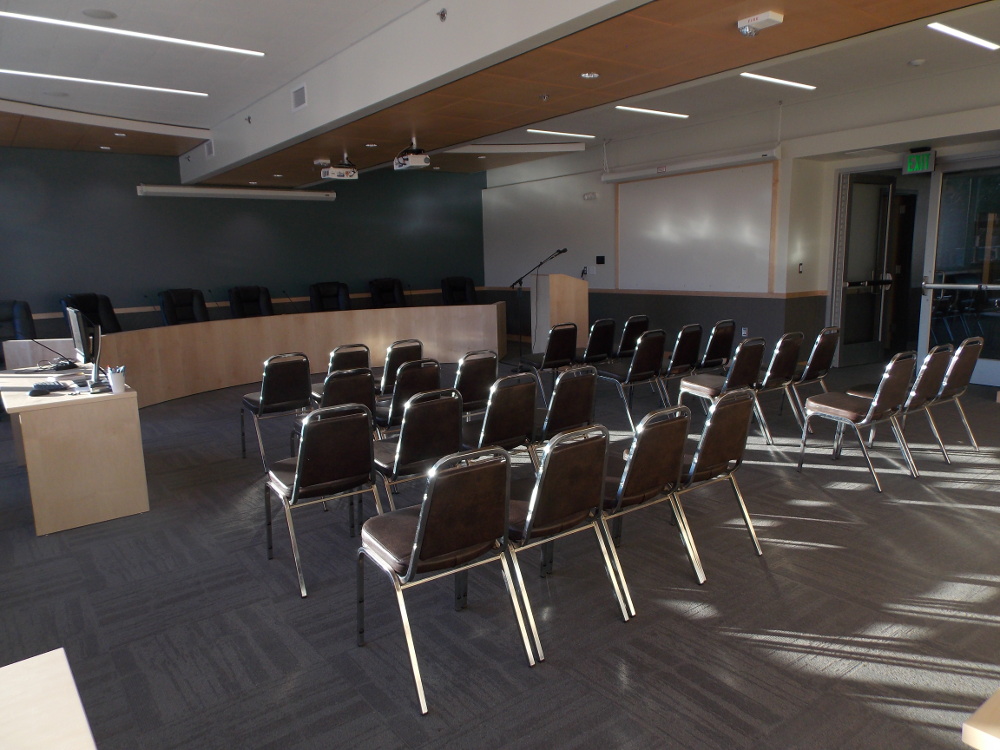
The votes were not yet there Monday for a plan to resume in-person public participation at meetings in Petersburg with health precautions for COVID-19. Some on the assembly thought it was too early to make that move. Meeting timing, overtime pay and the sound system at the assembly chambers also entered into the decision.
The local government only has a few remaining health orders still in place for the pandemic. One is a suspension of in person public meetings of the assembly and other local boards as a step to prevent spread of the virus. Local health mandate three was approved in early April. It was extended and changed in June to allow assembly members to choose to attend in-person but kept the prohibition for public participation except over the phone.
Incident commander Karl Hagerman noted that case counts elsewhere in Alaska are higher now than they were in June for the mandate’s last extension.
“Alaska as a state had approximately 200 active cases at the time and we were seeing about five new cases in the state everyday,” Hagerman said. “Today we have a different situation. We have roughly about 3700 active cases in the state and we just saw 143 new cases in the state yesterday. Of course that’s not reflective of the situation we have in Petersburg. As (Petersburg Medical Center CEO Phil Hofstetter) said we’re doing great, we feel very lucky to be in the situation that we are, having the first positive in over a month, just last week. So we are doing well but the condition of the pandemic in the state is not good at all.”
With some on the assembly asking for a return to meeting in person, borough manager Steve Giesbrecht drafted a mitigation plan for face coverings, distancing and public comment in person. As proposed it required a 3 p.m. starting times for all assembly meetings. That would limit the amount of overtime pay for staff to control the number of public participants in the assembly chambers at one time. Borough clerk Debbie Thompson explained that the plan included closing the finance department which is next to the assembly chambers.
“Our plan is to have a staff member downstairs at the main door, only allow three members of the public in upstairs at a time to allow for social distancing,” Thompson said. “One person can come to the podium, two more out in the lobby and we were planning to require those wanting to testify at assembly meetings to wear a mask. And right now we don’t necessarily require someone to wear a mask to come up and pay their bill at the finance department. We do ask for it, we do recommend it, we do not require it.”
Assembly members weren’t interested in going to 3 p.m. start times. Instead they voted to amend the plan to keep noon and 6 p.m. start times, keeping the status quo.
Chelsea Tremblay said she’d be opting to continue to attend by phone and wanted to wait on a return to in person.
“So to my mind given the fact that the state is in a state of high alert and we have a lack of intrastate travel testing requirement, I would hope that maybe we could postpone this until maybe this January or so, so we could have a sense of how this fall and winter is going to continue to play out,” Tremblay said.
Assembly member Bob Lynn thought the community COVID plan still being drafted could allow for a return to phone meetings if case counts increase.
“My thought is, is since we have very few cases in town it is time that we make ourselves much more available to the public and that this assembly sits as a forum rather than on a telephone,” Lynn said.
Others did not sound excited about overtime pay that would be required to implement the mitigation plan and to have staff for controlling public numbers indoors. It’s possible that expense could be paid for with federal emergency aid.
The sound system in the assembly chambers makes it difficult for people attending on the phone to hear others at the meeting. It’s also difficult for some at the meeting in-person to hear the assembly at times. Assembly member Jeigh Stanton Gregor wanted that fixed so a combination of in-person and phone meetings would function.
“I’m all for for switching this mitigation plan but not until our sound system in the assembly chambers has been sorted out,” Stanton Gregor said.
The vote was 3-3 with Stanton Gregor, Chelsea Tremblay and Jeff Meucci voting no. Taylor Norheim was not at the meeting. That means the mitigation plan fails for the time being. The assembly did not vote on rescinding the health mandate on meetings so that remains in place. The did vote unanimously to continue a temporary sheltering option for homeless in the community awaiting test results or isolating. That’s available at the Narrows Inn and its being paid for with a combination of federal and state emergency aid. It’s only been used three times this year and not since May.









